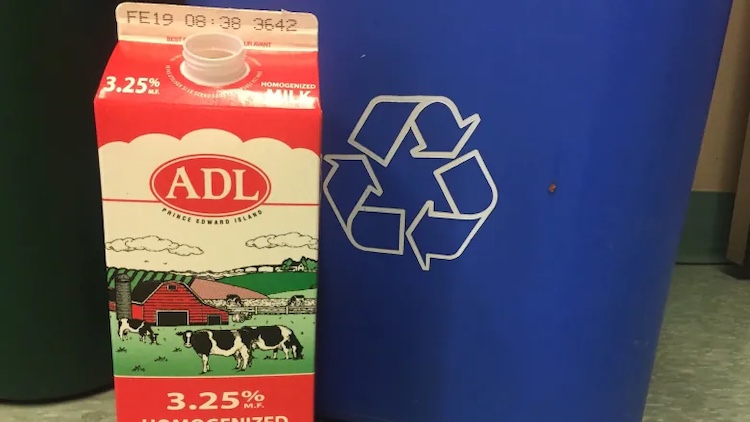Unless you’re lactose intolerant, chances are you have recently been to the dairy section and seen a milk carton. Milk cartons are a popular choice for packaging milk and other beverages because they are convenient, durable, and inexpensive. However, when it comes to recycling, there are many questions that people often have. The first of which is…
Are Milk Cartons Recyclable?
Yes, milk cartons are recyclable! In fact, cartons are one of the most widely recycled products in the world. The recycling process for them can vary depending on where you live, but in general, almost all recycling programs accept milk cartons. They are made from a combination of materials, including paperboard, polymers, and aluminum. These materials are all recyclable, which makes it relatively easy to recycle.
What are Milk Cartons Made Of?
The materials used to make milk cartons can vary depending on the manufacturer. However, most milk cartons are made from a combination of two or three primary materials. These materials include paperboard, polymers, and aluminum, which are sandwiched into a multi-layered/laminated supermaterial.
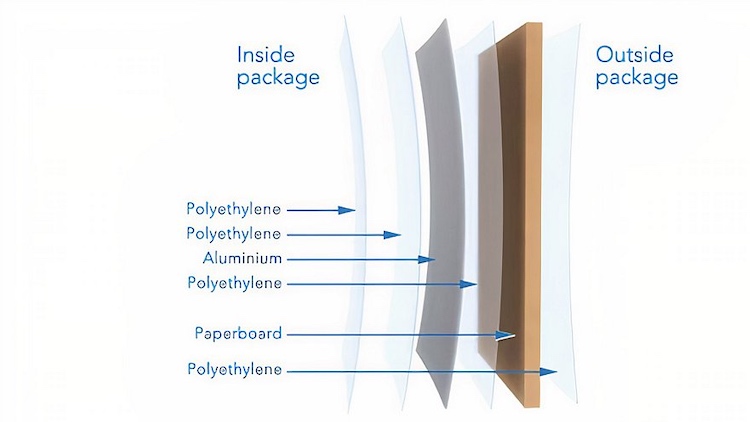
Paperboard
Paperboard is the primary material used for milk cartons. It is made from wood pulp and can be recycled. Paperboard is an excellent material for milk cartons because it is strong and lightweight, which makes it easy to transport and handle.
Polymers/Polyethylene
The polymers used in milk cartons are typically made from polyethylene, a type of plastic that is also recyclable. Most modern milk cartons have a spout or cap built into them, and polymers are also used to make those parts. Polyethylene is a popular choice for milk cartons because it is durable and flexible.
Learn more: Difference between polyethylene and polypropylene
Aluminum
The aluminum used in milk cartons is often used as a barrier material to protect the contents from light and air. The very thin layer of aluminum is sandwiched between layers of paperboard and polymer.
Who Makes Milk Cartons?
Milk cartons are made by various manufacturers worldwide, including Tetra Pak, Evergreen Packaging, and Elopak. These companies are known for producing high-quality containers that are durable and easy to use. They are typically sold to dairy farms or milk processing plants, where they are filled on-site.
There is a huge variety of shapes and sizes produced by these companies because many more beverages and food products are stored in similar materials. For example, if you’ve bought soup in a rectangular container rather than a can – that’s a very similar product and material to that used for milk cartons.
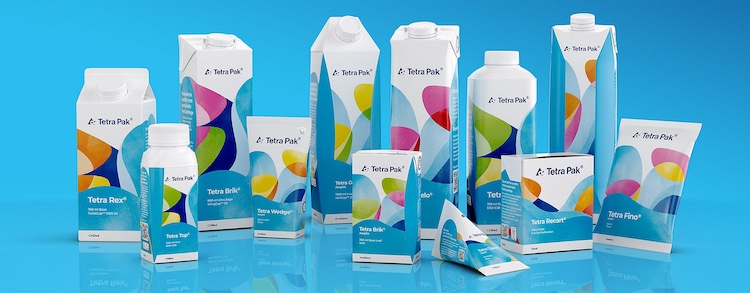
Tetra Pak is the global leader in food and beverage cartons, having operations in over 160 countries. They sold 192 BILLION food packages in 2021, which is 24 for every single man, woman, and child on the planet earth. They had over $11 billion in revenue in that year. Pretty astounding, considering there are dozens of other carton manufacturers that also make similar types of food and beverage cartons.
How Can You Recycle Milk Cartons?
There is very little required to recycle cartons, but before you throw it in the bin it’s important to clean it out. Only empty cartons can be processed, so rinse with water to remove any leftover milk. It doesn’t have to be spotless, but the cleaner it is, the more efficient the recycling process is – which ultimately means that more materials can be recycled!
Where Can You Recycle Milk Cartons?
The carton recycling process can vary depending on where you live. In the United States, most curbside recycling programs accept them. However, in some areas that have limited or no home recycling program, the cartons must be taken to a specific recycling center.
If you are unsure whether your local recycler accepts milk cartons, check with your city or county’s waste management department. Municipalities typically have a website with specific instructions on what can and can’t be recycled in their facilities.
In the European Union, milk cartons are generally accepted in recycling programs as well. However, recycling programs vary considerably depending on the country. Some countries may require that you take your milk cartons to a recycling center, while others may allow you to recycle them in your curbside recycling bin.
For example, in Spain there are different colored bins for different types of materials – a yellow recycling bin is for “beverage containers” in general, which include milk/beverage cartons, cans, and plastic bottles.
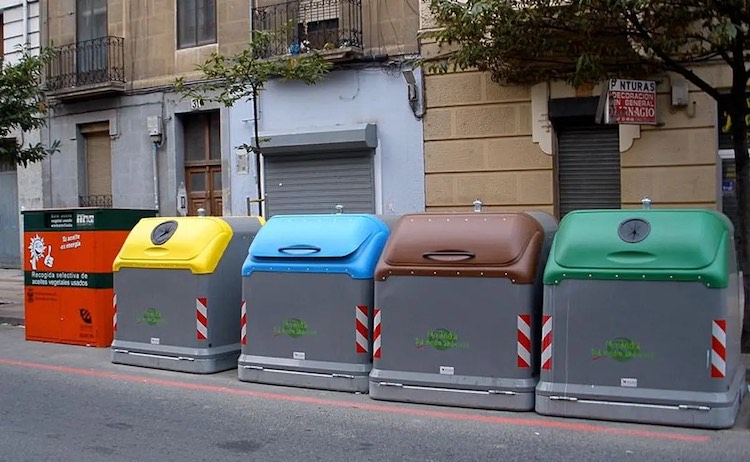
Are Milk Cartons with Plastic Spouts Recyclable?
Fortunately, there is no difference in recycling procedure between milk cartons that have a spout or cap and those that are the “old school” style with a folded lip. Your recycling plant will have some mechanical process to remove it before separating the layers of the carton itself, and whether they can recycle that spout separately depends on their equipment and what else they recycle in the materials recovery facility.
The folded lip style of milk carton is nearly extinct anyway, so almost all containers now have some form of hard plastic spout at the top that helps to control pouring.
How to Recycle Almond Milk Cartons
If you are wondering how to recycle almond milk cartons, the process is the same as recycling regular milk cartons. Most almond milk cartons are made from the exact same materials as regular milk cartons and can be recycled in the same way.
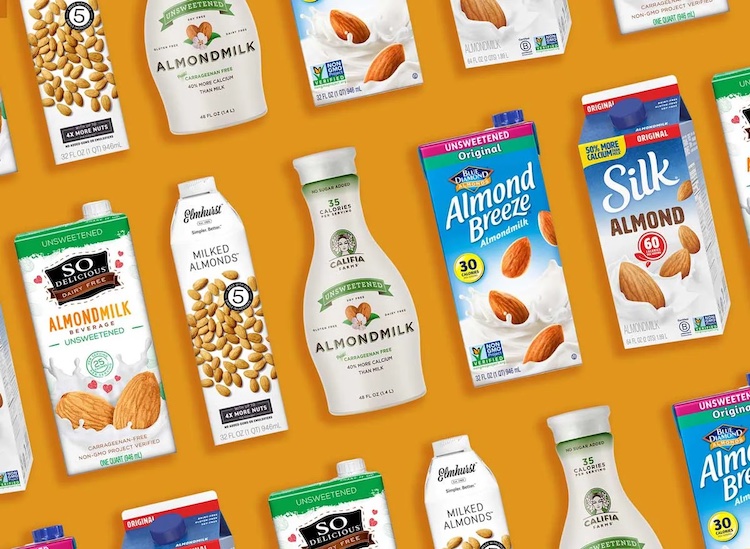
As with cow milk, before you recycle an almond milk carton, make sure to clean it out. Rinse the carton with water and remove any leftover almond milk.
Alternatives to Milk Cartons
While cartons are the easiest and most ubiquitous containers for storing milk, there are other options to consider.
Use Milk Bottles/Jars
One alternative to milk cartons is to use milk bottles or jars. Milk bottles are reusable glass containers that can be used to store milk and other beverages. Milk jars are durable and can be washed, sterilized, and reused many times – making them a far more sustainable option than milk cartons.
The only problem is finding them! High-end organic milk is being sold in glass jars more frequently in the grocery store, but that is intended to be single-use and then recycled. Which is a great option – and better than plastic.
But the best option is finding a dairy farm that provides home milk delivery that picks up empty bottles for reuse. Seventy years ago this would have been very common, but now we have to go out of our way.
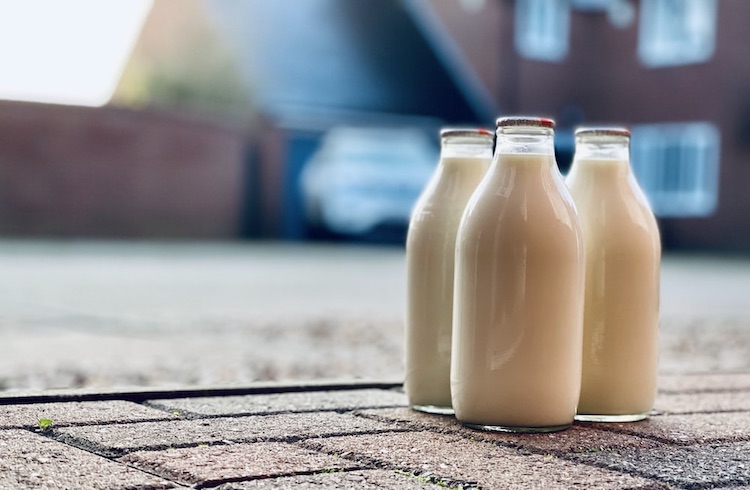
Use Milk Jugs
Another extremely common alternative to milk cartons is to use plastic milk jugs. These likely outnumber milk cartons in the grocery store – at least they do here in the US. In Europe that’s probably not true.
Milk jugs are fully recyclable and reusable containers. Like milk bottles, milk jugs can be washed and reused many times. Also, plastic jugs are easier to recycle from a process perspective than milk cartons. The carton is made of many different materials laminated together which have to be separated – a complex and energy-intensive process. Milk jugs on the other hand simply have to have the label removed before they can be shredded.
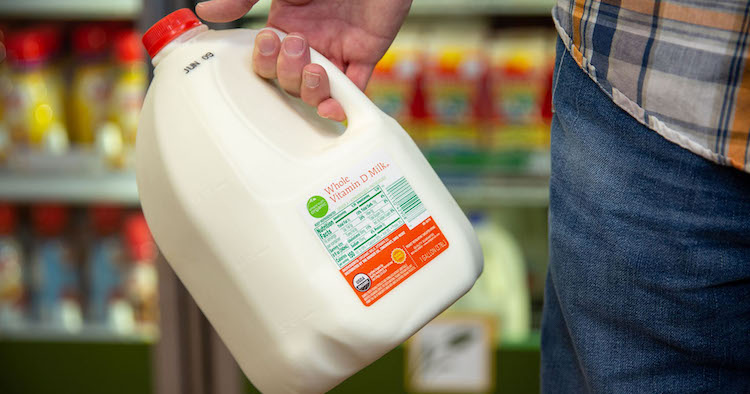
Can Milk Cartons Be Reused?
While it is not recommended to reuse milk cartons for storing food or beverages, there are many DIY projects that you can do with cleaned milk cartons. Here are a few ideas:
- Bird Feeder – Cut a hole in the side of a cleaned milk carton and fill it with birdseed. Hang the milk carton from a tree or pole and watch the birds flock to it.
- Seed Starter – Cut off the top of a cleaned milk carton and fill it with soil. Plant seeds in the soil and place the milk carton in a sunny spot. Once the plants have grown, you can transplant them into your garden.
- Desk Organizer – Cut the top off a cleaned milk carton and cover it with decorative paper or fabric. Use the milk carton to store pens, pencils, and other desk supplies.
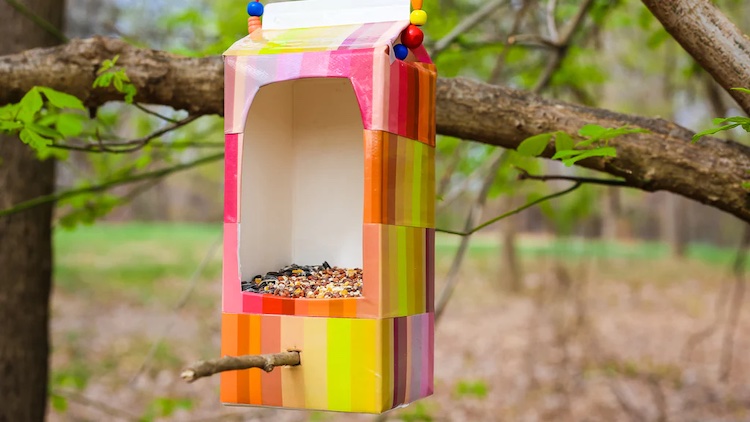
Sterilizing a used milk carton
In all honesty, you probably can reuse plastic milk cartons for food and beverages. The key is to sterilize it before reuse. That can be as simple as diluting standard bleach in water in a 10-1 water-bleach ratio and letting it soak for 10 minutes, shaking it up every minute or so. The bleach will easily kill any bacteria that may have been left over from the milk.
The other key is to ensure that you have rinsed out any bleach left in there. Trace amounts of bleach won’t harm you, but you want to do a really good job rinsing it out. If you smell bleach – you haven’t rinsed it well enough.
Summary
Now you know that a carton of milk is easily recyclable and can be recycled in most areas that have recycling programs. If you are unsure whether your local recycling program accepts milk cartons, check with your city or county’s waste department.
